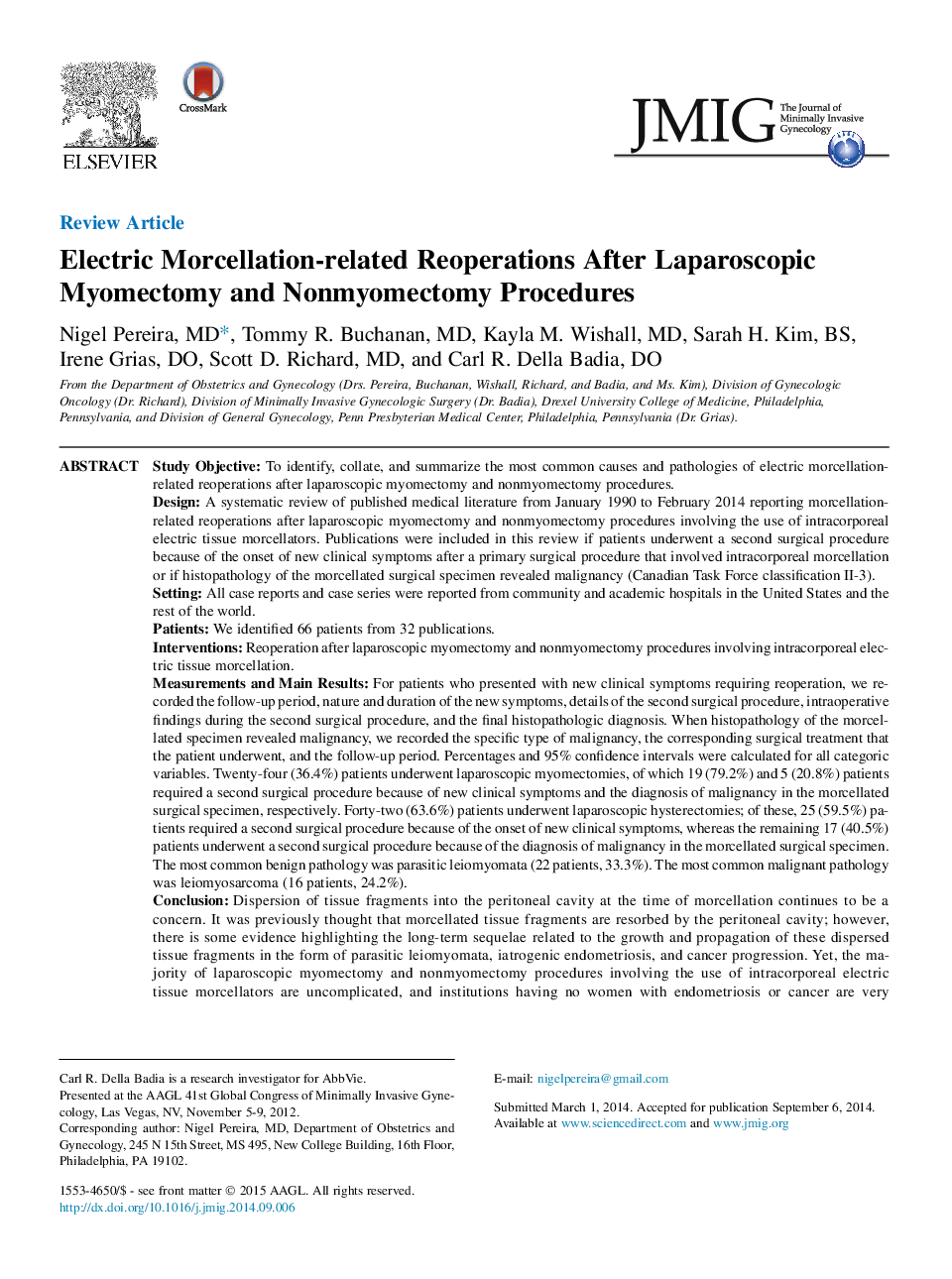| Article ID | Journal | Published Year | Pages | File Type |
|---|---|---|---|---|
| 3961801 | Journal of Minimally Invasive Gynecology | 2015 | 14 Pages |
Abstract
Dispersion of tissue fragments into the peritoneal cavity at the time of morcellation continues to be a concern. It was previously thought that morcellated tissue fragments are resorbed by the peritoneal cavity; however, there is some evidence highlighting the long-term sequelae related to the growth and propagation of these dispersed tissue fragments in the form of parasitic leiomyomata, iatrogenic endometriosis, and cancer progression. Yet, the majority of laparoscopic myomectomy and nonmyomectomy procedures involving the use of intracorporeal electric tissue morcellators are uncomplicated, and institutions having no women with endometriosis or cancer are very unlikely to report surgical outcomes of uneventful electric morcellation. Thus, prospective studies are still required to validate the role of electric intracorporeal tissue morcellation in the pathogenesis of parasitic leiomyomata, iatrogenic endometriosis, and cancer progression.
Related Topics
Health Sciences
Medicine and Dentistry
Obstetrics, Gynecology and Women's Health
Authors
Nigel MD, Tommy R. MD, Kayla M. MD, Sarah H. BS, Irene DO, Scott D. MD, Carl R. DO,
